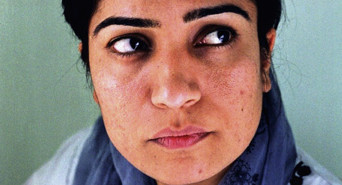By Bryson Hull
KABUL - Faint hopes that Afghanistan's fledgling parliament would hold President Hamid Karzai to account are evaporating after another violent, fraud-tainted election likely to produce an assembly as ineffective as its predecessor.

"The same like the last parliament, most of them will be lawbreakers not lawmakers," said Joya, whose vocal criticism of former warlords in the parliament led to physical attacks and eventually a three-year suspension from the legislature in 2007.
Without any need to court parliament or worry that it will present a challenge to him, Karzai will again be able to essentially rule as he pleases, analysts say.
The stench of graft and vote-buying surrounding the September 18 poll is not likely to help perceptions of the Afghan government, either among Karzai's Western backers or the millions of Afghans who have tired of corruption and politicians they see as out only for themselves.
The 2009 presidential poll helped reinforce that perception.
"It's no question a few democrats ran, men and women, but I am sure most of them will not win. A few of them, maybe they will win to make a showcase of democracy," former parliamentarian Malalai Joya said.
"The same like the last parliament, most of them will be lawbreakers not lawmakers," said Joya, whose vocal criticism of former warlords in the parliament led to physical attacks and eventually a three-year suspension from the legislature in 2007.
Counting is still under way after the election to decide the 249 seats of the wolesi jirga, or lower house of parliament, after nearly 2,500 candidates competed in a poll beset by Taliban violence and complaints of election violations of every stripe.
The final result is not expected until at least October 30, but analysts expect a familiar pattern to last year's presidential election, which Karzai won despite having more than a third of his votes thrown out as fake.
Washington considers curbing corruption in Karzai's administration integral to plans to eventually withdraw troops, the speed and scope of which is expected to be examined in President Barack Obama's strategy review in December.
Analysts say graft brews public disdain that favors the Taliban, weakens Karzai's legitimacy and crimps the government's ability to build up the institutions it needs to rule the country effectively, especially its security forces.
"These parliamentary elections were more or less like a non-event and nothing is going to change, at least structurally," Eurasia group analyst Maria Kuusisto told Reuters.
GRAFT, PATRONAGE
Parliament's normal modus operandi, as a body more rooted in traditional Afghan politicking than its modern legal structure suggests, is one where ethnicity, religion, patronage and ideology create ad hoc alliances.
This allows for some muscle-flexing by the assembly, but there is no real bloc to present a united front against Karzai.
"The parliament has, in its own sort of random way, been a body that hasn't been fully controlled, and sometimes that's meant it's a check and sometimes it has complicated things," said Martine Van Bijlert, co-director of the Afghan Analysts Network, told Reuters.
"I expect that to continue, because Afghan politics are so complicated and negotiations are constantly ongoing," she said.
The wolesi jirga has stood up to Karzai before, first by rejecting a host of his cabinet nominees in December and January, then in March by voting against his decree removing one foreign observer from the Electoral Complaints Commission.
But Wahid Mujdah, an Afghan writer and analyst who served in the foreign ministry under the Taliban, said the outgoing parliament had a bit more teeth than the incoming one, because the previous parliamentary election hadn't been as bad.
"This was not a very fair and good election, because some people thought of the previous election, and thought of fraud and that the ballot boxes will be stolen. With the insecurity, that meant it was not worth the risk," he said.
The poll is likely to have had the lowest turnout of the four national votes since U.S.-backed Afghan forces ousted the Taliban in 2001, with a total of about 4.3 million votes cast.
There was more room for intimidation, vote-buying and misconduct by election officials in this vote versus the 2005 parliamentary poll, Mujdah said, because poor security meant fewer international observers.
"I think the first parliament was better than the second will be. The quality of people won't be as good," he added.



